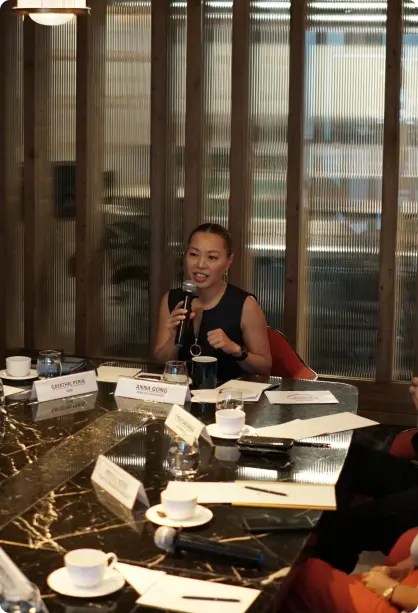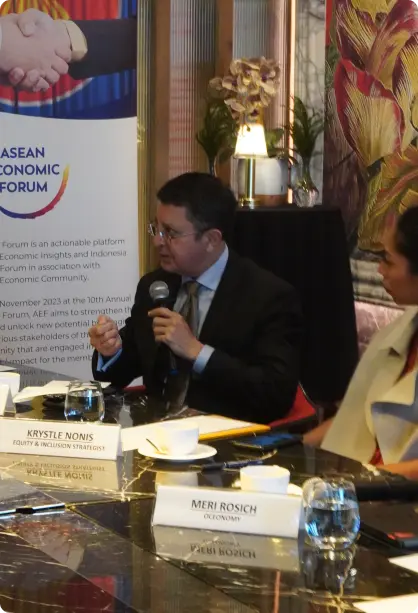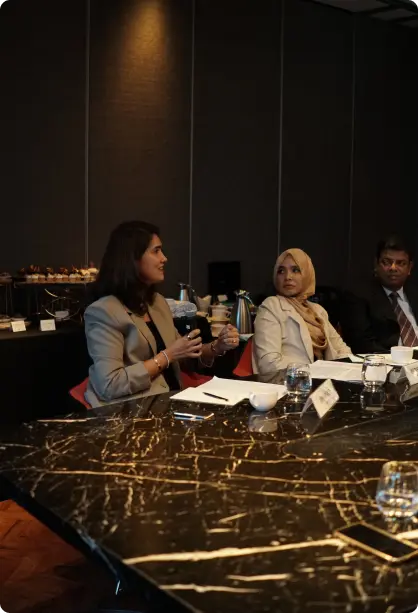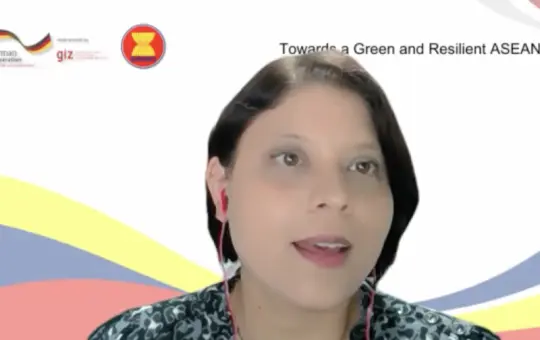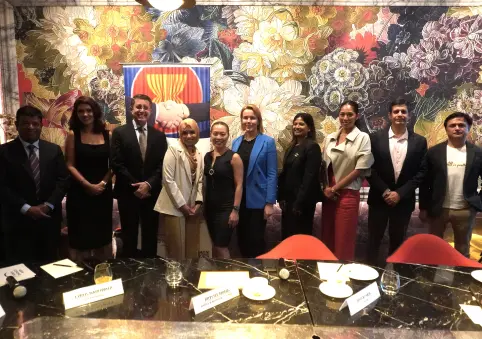
Friday 10th May 2024 at 14:00 - 16:00 SGT | 1880 Singapore

Friday 10th May 2024 at 14:00 - 16:00 SGT | 1880 Singapore

"The ASEAN Economic Resilience Index (AERI)" is a comprehensive measure designed to assess and rank the economic resilience of member countries within the ASEAN. This index incorporates a range of indicators, including but not limited to economic diversification, fiscal strength, trade balance, financial stability, and social resilience. By quantifying and comparing these factors, the index aims to provide insights into the ability of ASEAN nations to withstand economic shocks, adapt to changing global conditions, and promote sustained growth.

A visionary initiative that combines a dynamic Skill Platform and an innovative Job Platform to catalyze the professional growth of young talents and emerging leaders within ASEAN region. This unique ecosystem is designed to foster economic development, promote regional cooperation, and address the critical skill gaps in today's global marketplace.
